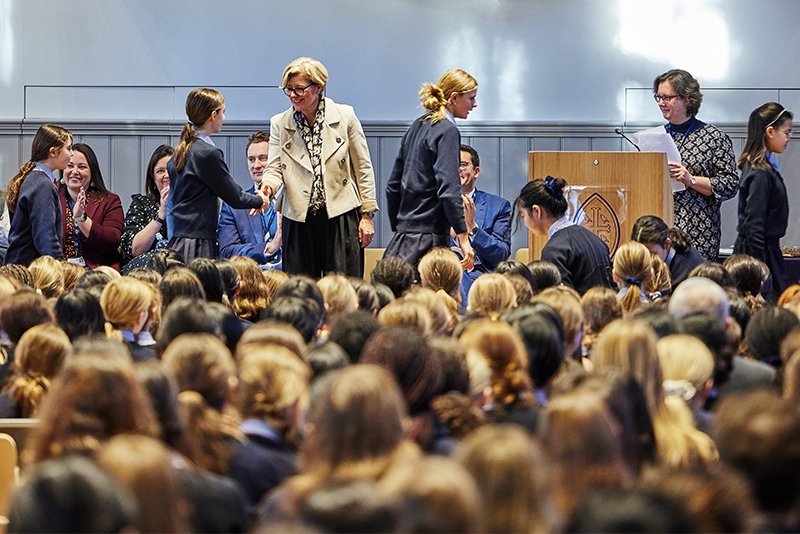Competitions and the Academic Qualities
12 June 2023 - Academic

This term we have been exploring Wycombe Abbey’s Academic Qualities of Risk Taking, Resourcefulness, Determination, Reflection and Development, which we promote as those characteristics which underpin creative and critical thinking. Follow us on Instagram to learn more about each one over the next few weeks.
Anyone listening to the Headmistress in Mark Reading or School Meeting would have been struck by the vast array of pupil achievements covering all areas of school life, but particularly prevalent was participation in a myriad of academic competitions. Some of these announcements were exceptional achievements in highly prestigious external events, but equally striking was the enthusiasm for our internal competitions including the newly launched Kathleen Wilkes Essay Prize (open to all pupils in UIV). The large number of entrants contrasts sharply with other schools where involvement is normally restricted only to so-called ‘scholars’ or the most highly attaining.
But why is this involvement in competitions so important? It should first be noted that competitions have nothing to do with being competitive. Indeed, arguably the most important aspect of competitions is that the result does not really matter. Success is a bonus, but a good attempt is still to be praised. They thus provide a space where pupils can strive for excellence which is free from pressure.
Competitions also proved a good embodiment of our Academic Qualities. The questions asked in essay competitions are quite literally impossible to answer fully. Pupils, therefore, need to overcome the initial trepidation that comes with tackling something outside of their comfort zone. It is also well known that winning entries will often not be the ‘best’ but rather the most interesting and those with the most authentic voice. Academic risk-taking is thus prioritised in a way which is not always present in the taught curriculum, where there is often an advantage to playing things safe.
The need for resourcefulness and determination is perhaps most clearly seen in the various Computing, Mathematics, Science or Linguistics Olympiads where pupils are confronted with problems to solve that are both difficult and unfamiliar. While pupils are drawn to these by the delight and satisfaction they get from the challenge, they are also developing invaluable skills in ingenuity and flexible thought.
Despite the ever-increasing popularity of these problem-solving challenges, the most common academic competition at Wycombe Abbey probably still remains ‘the essay’. The derivation of the word is from the French ‘essayer’, which means to try, pointing to the fact that although the challenge is high, the expectation is not to produce perfection, but rather as good an attempt as possible.
In any competition, it is of course a simple theorem that most entrants will not win, but even this fact points to an opportunity to learn. The way in which competitions lead to improvement is perhaps most familiar in sport, where we can all think of examples where a team will reflect on a disappointment, and through hard work in the gym or training ground will see them come back stronger. In a similar way, academic competitions can be a catalyst for development and growth.
Mr David Vaccaro
Director of Learning and Innovation
Keep up to date with further news from Wycombe Abbey on our social channels.